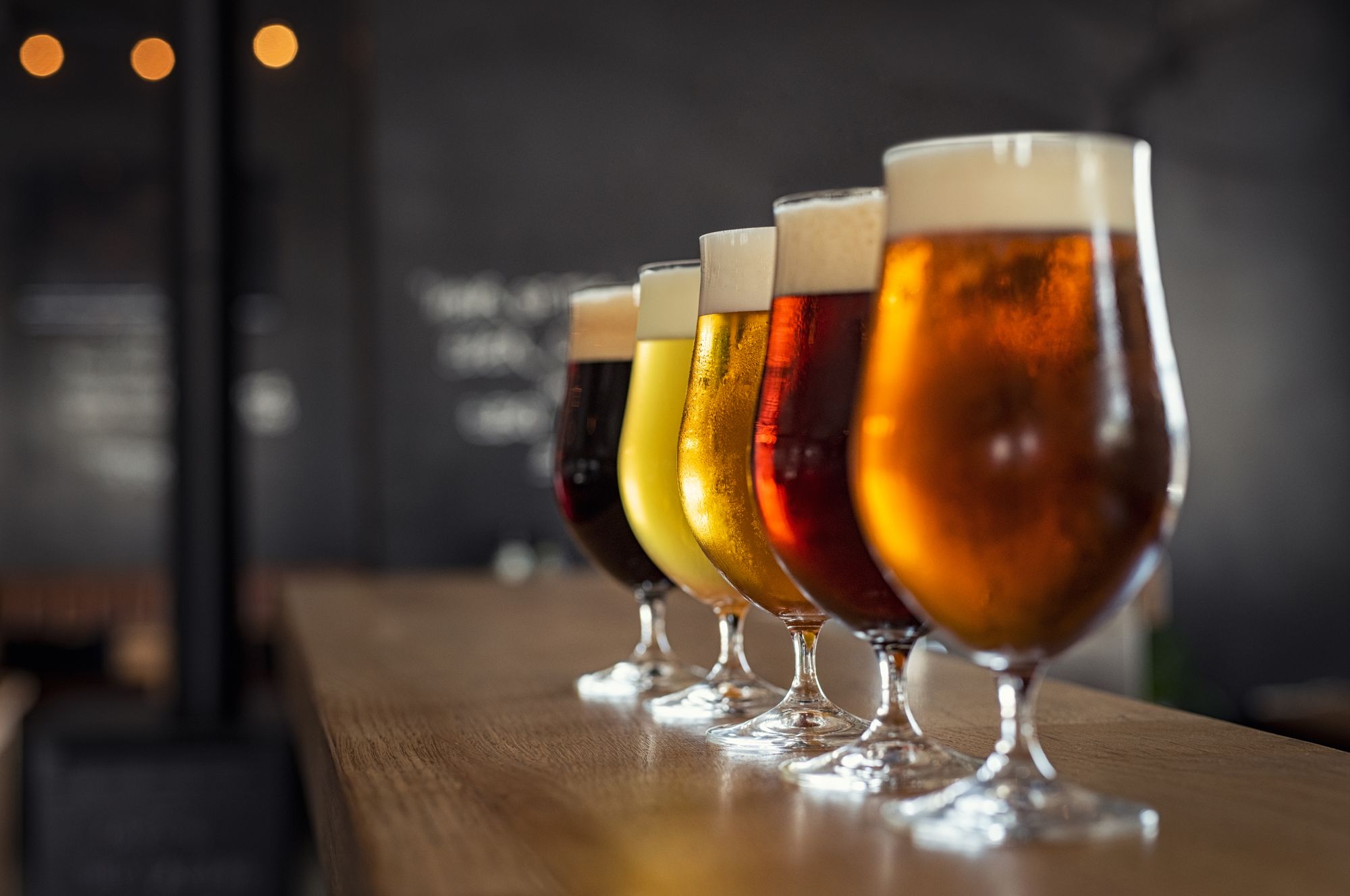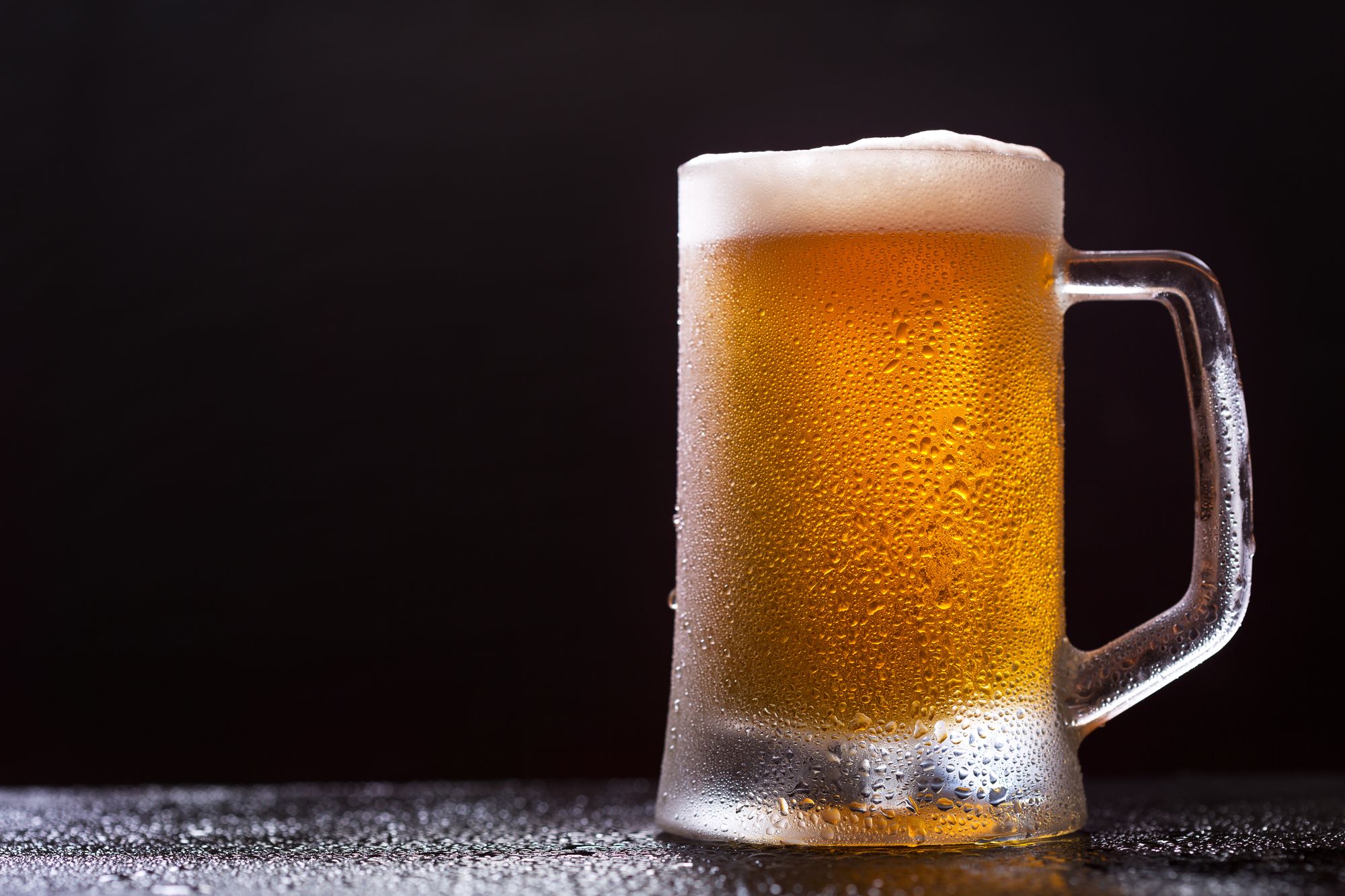For many people, savoring a cold beer after a long day at work or during a relaxed get-together with friends is a cherished tradition. Beer has been an integral part of American culture for centuries, celebrated for its diverse flavors and cultural significance. However, it's essential to grasp the true impact on your body if you turn daily beer consumption into a habit.
Beer, like any alcoholic beverage, can have substantial effects on your body. Just as with any pleasurable food or drink, moderation is crucial for responsibly enjoying beer. While some studies suggest that moderate beer consumption may offer potential health benefits, such as promoting heart health and supplying essential nutrients, making daily beer consumption a habit can result in a range of health issues. These consequences encompass weight gain, liver problems, sleep disturbances, and dehydration. It is vital to comprehend how this beloved beverage interacts with your body and the possible outcomes of excessive consumption.
1) Increase in Body Weight
Beer is laden with empty calories, and when consumed daily, it can contribute to weight gain. A 2015 study highlights that these additional calories, particularly those derived from the carbohydrate content in beer, can accumulate rapidly. Weight gain can give rise to a range of health problems, including obesity and its associated complications.
Michael Masi, a Certified Personal Trainer at Garage Gym Reviews, points out, "Beer can be calorie-rich and lead to weight gain. IPAs, in particular, are calorically dense, and daily consumption would impede weight loss efforts."
2) Elevated Risk of Cancer
As per the National Cancer Institute, the daily consumption of beer heightens the likelihood of specific cancers, such as those affecting the mouth, throat, and esophagus. The ethanol present in beer can harm the cells lining these regions, augmenting the vulnerability to cancer formation.

3) Impaired Coordination
While a single beer might induce relaxation, consuming multiple drinks can interfere with your coordination and motor skills. This impairment can result in compromised judgment, a heightened risk of accidents, and the potential for injuries. Michael Masi clarifies, "Alcohol has an impact on your motor skills and reaction times. Depending on your tolerance and the quantity you consume, you could be exposing yourself to the risk of injury or, at the very least, diminished physical performance."
4) Dehydration
While a daily beer routine might appear innocuous, it can actually lead to dehydration, leaving you feeling parched and depleted. Alcohol functions as a diuretic, prompting your body to eliminate more fluids than you're ingesting. Studies indicate that dehydration can lead to headaches, fatigue, heightened thirst, and a general sense of sluggishness.
Michael Masi explains, "Alcohol is a diuretic, meaning it promotes fluid loss and can lead to dehydration. Your hydration level plays a role in the severity of hangovers and impacts physical performance. Consequently, daily drinking underscores the increased importance of obtaining adequate water from other sources."
5) Sleep Disorder
Although beer may initially induce drowsiness, scientific research indicates that alcohol disrupts the quality of sleep, leading to frequent awakenings and a lack of rejuvenating rest. Over time, this disruption can give rise to sleep disorders and daytime fatigue.
Michael Masi elaborates, stating, "Alcohol has been observed to shorten the time it takes to fall asleep and increase the amount of deep sleep during the first part of the night. Nevertheless, this effect reverses during the latter part of the night. Alcohol consumption can lead to more frequent awakenings, reduced REM (rapid eye movement) sleep—which is vital for memory and mood regulation—and an overall lighter, more fragmented sleep. Consequently, this disruption can result in waking up feeling unrefreshed and weary, regardless of the duration of sleep."
6) Skin Health Concerns
Alcohol has a dehydrating effect, and chronic dehydration can lead to dry and flaky skin. Moreover, alcohol has the ability to dilate blood vessels, potentially resulting in facial redness and the development of broken capillaries. Over time, sustained dehydration can diminish skin elasticity and contribute to the formation of fine lines and wrinkles. Additionally, alcohol may interfere with the absorption of crucial nutrients, including essential vitamins like vitamin A and antioxidants, which play a vital role in maintaining skin health. Insufficient levels of these nutrients can hinder the skin's capacity to rejuvenate and defend itself against environmental stressors. Furthermore, for some individuals, alcohol can exacerbate inflammatory skin conditions such as rosacea, leading to flare-ups and heightened redness.
7) Diminished Immune Function
A review conducted in 2015 revealed that the consumption of excessive alcohol can dampen immune function, rendering individuals more vulnerable to infections. Michael Masi advises, "Alcohol has the potential to weaken your immune system, increasing your susceptibility to illnesses. Additionally, it can hinder overall recovery, resulting in reduced performance capacity, even in the gym."
8) Deficiencies in Essential Nutrients
Alcohol can disrupt the absorption of vital vitamins and minerals, potentially resulting in nutrient deficiencies, particularly affecting B vitamins, which are essential for energy production and overall health.

"Alcohol, regardless of its source, interferes with nutrient absorption through various mechanisms," explains Masi. "Alcohol can cause inflammation of the stomach lining, leading to reduced production of stomach acid, which is critical for the digestion of specific nutrients. Given that the liver plays a central role in nutrient metabolism, any compromise to this organ can impede the storage and utilization of certain vitamins and minerals. Additionally, as a diuretic, alcohol's effect may lead to the loss of minerals such as potassium, magnesium, and calcium if not adequately replenished."
9) Elevated Risk of Liver Disorders
It's widely known that regular daily beer consumption can pose a threat to your liver. According to the National Institutes of Health (NIH), excessive alcohol consumption can result in liver inflammation, fatty liver disease, and eventually cirrhosis. Michael Masi adds, "Persistent alcohol consumption can contribute to fatty liver, hepatitis, or cirrhosis. However, these risks are significantly reduced when alcohol is consumed in moderation."
10) Disruption of Blood Sugar Control
In accordance with a 2015 study featured in Biomolecules, regular beer consumption can influence blood sugar levels, potentially leading to issues such as insulin resistance and an elevated risk of developing type 2 diabetes. This is attributed to the sugar content found in certain beer varieties, coupled with the impact of alcohol on insulin regulation, which can disrupt the body's ability to effectively manage blood sugar.
Michael Masi explains, "Moderate to high alcohol consumption can lead to a decrease in blood glucose levels, partially because alcohol can impede the liver's capacity to produce glucose. Additionally, alcohol may hinder the body's hormonal response, affecting insulin secretion by the pancreas. Over time, with chronic alcohol consumption, these effects can contribute to reduced insulin sensitivity, implying that the body requires more insulin to efficiently process glucose.

